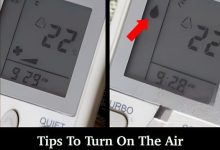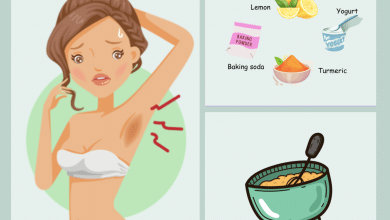Despite taking a laundry list of precautions against more obvious dangers, many of us are ignoring a wide variety of items in our home that could be causing us harm. From kitchen appliances to the very items we use to clean our living spaces, these surprising items in your home could be making you sick.
Can Openers

While you likely clean your dishes and utensils on a regular basis, few of us can remember the last time we gave our can opener a thorough scrub. Unfortunately, our neglectful behavior when it comes to this useful kitchen tool may be making us sick.
In fact, according to one study, thanks to the food particles we’re being less-than-diligent about cleaning off, everything from mold to E. coli, the latter being potentially deadly, has been found on can openers.
Air Conditioning

While air conditioning may be a must-have in hot climates, those units keeping us cool might be putting our health at risk. While multiple studies confirm that mold is a regular inhabitant of our air conditioning’s filters, that’s not the only scary thing hiding out in our A/Cs. In fact, according to a study published in the International Journal of Indoor Environment and Health, air conditioning has been found to harbor a particular bacteria that actually feeds on human skin. And in larger buildings, Legionella, the bacteria responsible for Legionnaire’s disease, is often found in cooling units.
Leaky Pipes

That leaky pipe under your sink might be doing more damage than just leaving you a water-stained ceiling on the floor below. Leaky pipes are a major factor in the development of household mold, which a meta-analysis conducted by researchers at the University of Finland reveals to be a contributing factor in the development of asthma.
Vacuum Cleaners

Think your vacuum cleaner is necessarily helping you reduce the number of contaminants in your house? Think again. According to a study published in Applied and Environmental Microbiology, in addition to some bacteria staying alive for up to two months inside a vacuum cleaner bag, some had also developed antibiotic-resistant properties.
Bed Sheets

Research reveals that the average pillowcase has up to 12 million colony-forming units of bacteria on it after four weeks of not washing. Unfortunately, this collection of bacteria is made up of 41.45 percent gram-positive rods, which are dangerous to your health and can lead to antibiotic resistance.
Nearly a quarter of the bacteria found in bedding is of the bacilli variety, strains of which are often major contributors to food poisoning.
Kitchen Sponges

Cleaning your dishes and counters with that kitchen sponge may be doing more harm than good in the long run. According to research published in Scientific Reports, the kitchen sponges studied harbored 362 distinct bacterial species, with a shocking 45 billion bacteria per square centimeter, many of which can cause food poisoning and other illnesses.
Shower Heads

Your shower head isn’t just getting you (theoretically) clean: it could be getting you sick in the process. According to researchers at the University of Colorado at Boulder, shower heads can harbor everything from Legionella, the bacteria behind Legionnaire’s disease, to Nontuberculous Mycobacteria, which can cause devastating lung infections, particularly among those with already-weakened immune systems.
Door Handles

Every time you open a door in your home, you may be opening yourself up to a wide variety of illnesses, too. According to a study published in PLoS One, the frequency with which a door knob or handle is used is directly correlated with its bacterial counts.
Scarier yet, research from the American Journal of Infection Control says that even with regular cleaning, 20 percent of hospital door handles still had significant bacterial counts.
Old Windows

Virtually all American homes built prior to 1978 are likely to contain at least some lead paint, with windows being a particular culprit when it comes to lead poisoning, which can cause everything from an upset stomach to behavioral issues to brain damage.
In fact, according to research published in the Journal of Occupational and Environmental Hygiene, windows that rubbed when opening and closing created 27 percent more lead dust than those that moved smoothly.
Refrigerator Compartments

Just because you clean your refrigerator on a regular basis doesn’t mean it’s staying that way. According to research conducted by Microban Europe, veggie drawers are a particularly bad source of contaminants, hosting up to 750 times the number of bacteria generally deemed safe. Unfortunately, it’s not just harmless bacteria those drawers are hosting, either; everything from listeria to salmonella to E. coli, both of which can cause serious digestive issues or even death, have been found in veggie drawers.
Cleaning Products

The very products you use to keep your home clean could be jeopardizing your health. According to research published by the American Thoracic Society, women who regularly cleaned with household cleaning products, whether at home or in a professional capacity, had significant lung function decline when compared to their counterparts who abstained.
Bath Mats

According to research published in PLoS One, bathroom floors are regularly contaminated with human skin, fecal bacteria, and even bacteria found in soil. When you take into account the warm and damp climate bath mats are usually kept in—and how infrequently they’re washed—it’s clear that they’re a veritable hotbed of bacterial activity, and one that can easily make you sick.
Air Freshener

Don’t risk your health just to keep your house smelling sweet. Research conducted by the National Institute of Environmental Health Sciences reveals that 1,4 dichlorobenzene, a volatile organic compound found in air fresheners, is linked to reduced lung function.
Carpet

That wall-to-wall carpeting may keep your house warm and quiet, but it could be putting your health at risk. Wall-to-wall carpeting is known to contain volatile organic compounds and formaldehyde, both of which are known to contribute to reduced lung function. In fact, one study of carpet factory workers found that their occupational exposure to these substances adversely affected their lung health.
Computer Keyboards

Clearing your browser history isn’t the only kind of cleaning your computer should be getting. A study conducted at Swinburne University of Technology in Melbourne, Australia found significant levels of bacterial contamination on computer keyboards, with everything from staphylococcus to E.coli potentially taking up residence on them.







